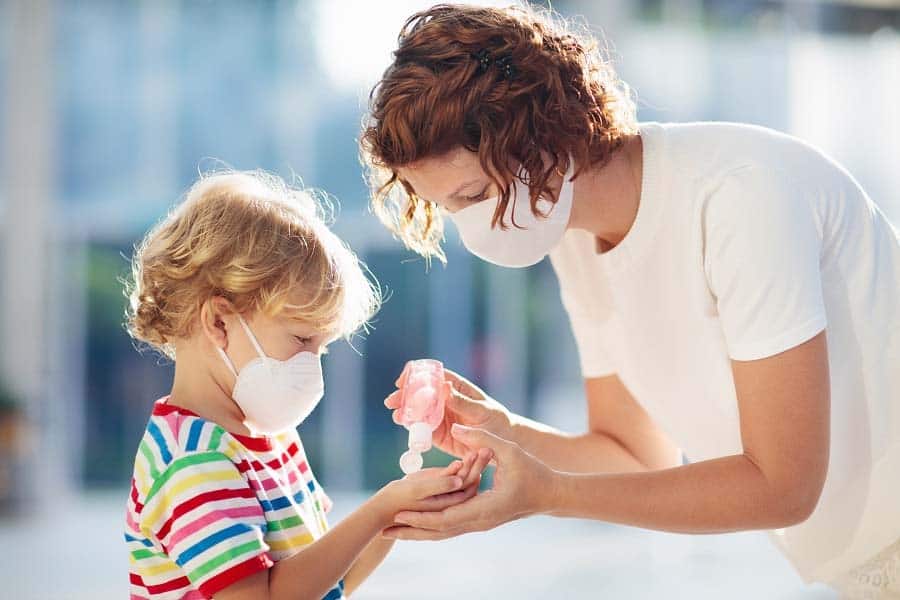Parenting During the Pandemic
In the last four weeks, more kids have tested positive for COVID-19 than in the entire pandemic combined. The Omicron variant is surging throughout the United States and the world, leaving many parents (especially those with children under five) feeling helpless.
“I have taken precautions for two years. I have been super cautious. What was it all for, when now we test positive?”
“Is my child going to be okay when they get COVID?”
These are all tough questions and I know the weight parenting in a pandemic can bring. For two years, many of you have balanced the desire to want to give your child experiences with the risk of contracting COVID-19. And during the last few weeks, this has felt even harder.
I want to first remind you to continue maintaining your family’s COVID precautions. We are still largely seeing better clinical outcomes with this variant compared to variants before. This doesn’t mean that we want to actively get COVID, but remember that if your child does contract the virus, the likelihood of them having a good outcome is high.
We are seeing a larger amount of hospitalizations than before given how contagious this virus is. Outcomes aren’t more severe than prior variants, but the sheer volume on top of other seasonal viruses is causing more difficulty for healthcare systems.
We are also seeing the omicron variant affect younger children. Some children have mild symptoms, some have fever and some have difficulty breathing (wheezing or severe croup). It’s hard to say WHO is more likely to have severe symptoms, but it seems that if a child is predisposed to wheezing or croup, they are more likely to have the symptoms with this virus.
It’s also important to take care of yourself and your mental health. Anxiety is at an all-time high for parents. Here are some ways to cope right now:
Turn off mainstream media. It will continue to report case counts and rising hospitalizations. We know this is happening and seeing this won’t change anything in your day-to-day life.
Come up with a sustainability plan that works for your family. This may look different from family to family, it depends on risk factors or your own level of comfort.
Understand that we shouldn’t throw caution to the wind. We don’t want to actively try to get this virus. Focus on your precautions (masking, vaccinating those age eligible, and keeping kids home from school or childcare when sick) to reduce the risk of spread.
Connect with other adults via phone calls or audio messages. As parents, it can often be difficult reaching out to other parents due to conflicting schedules to have a phone call. Leave an audio message for a friend so they can hear your voice and they can respond when they’re able. This allows the feeling of connection and ability to communicate.
Lean on your partner (if you have one) and other loved ones for support. It’s okay to use hired help if you need it for a break. The benefit of having help in your home outweighs the risk of this variant. YOU may need help and it’s important to utilize any help you can get so you can take even a 20-minute breather.
Decide your long term-plan understanding that this virus is something we will eventually learn to live with. I think a lot of the frustrations come because we EXPECT this will end. However, have the expectation that this is something we will live with like RSV or the flu and come up with your long-term sustainability plan.
*Presented by Pediatric Associates


